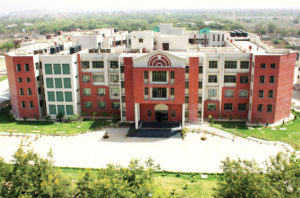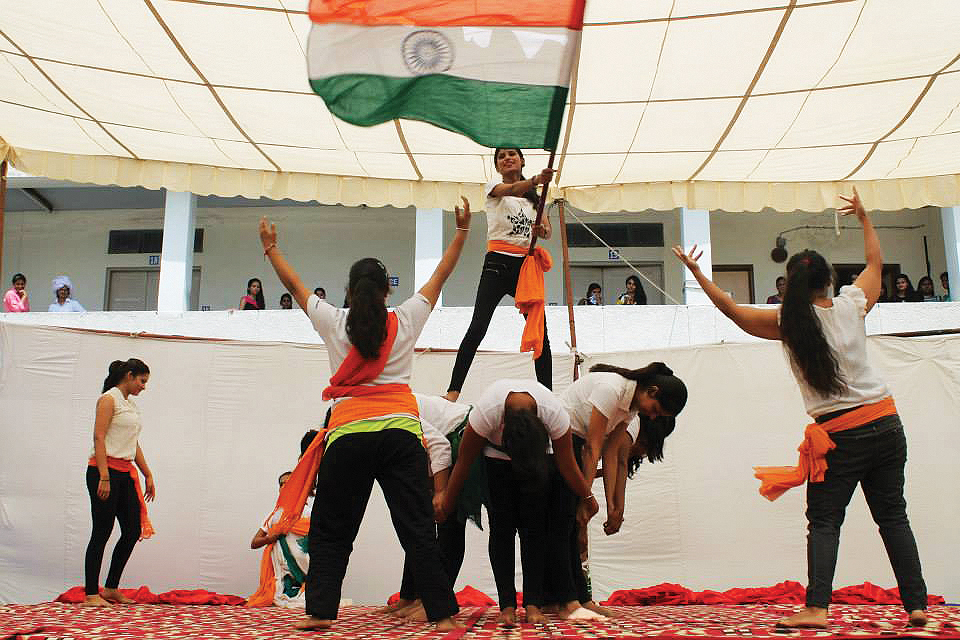It’s mostly women’s colleges that do not participate in DUSU elections. But many students and faculty members say they should
To represent students from across its colleges and departments, the Delhi University has a students’ union whose leaders are elected annually. Each college also elects its own student body. There are a few colleges, though, that do not participate in elections to the Delhi University Students’ Union — and they are overwhelmingly women’s colleges.
Why don’t they?
Stuti Dutt, cultural secretary of the Indraprastha College for Women, argues there may be “safety reasons” for excluding women’s colleges given the “ugly turn” that political rivalries usually take during elections. “In DUSU, women aren’t vocal about their ideas and their willingness to contest elections,” she claims. “It is only male students who contest the elections using money and muscle power.”
A leader of the Bharti College Students’ Union disagrees. There is no reason for her college to not join DUSU, she argues, because it offers students “a platform in politics”. Colleges represented by DUSU, she claims, are listened to more by the university. “We don’t have much power so we cannot bring about any major changes, and we face issues in getting funds and sponsors,” she says.
The Bharti College used to participate in DUSU elections but disassociated in 2008. “Teaching schedule was getting disturbed,” a faculty member claims by way of an explanation. “Candidates would take students for movies and have parties for them, and that was disrupting the teaching process. Our work is to provide teaching, not to produce politicians. So, the entire staff got united, leaving aside their political preferences, and decided to disaffiliate from DUSU. The college conducted a referendum on the matter. Since then, the college has been functioning according to the JM Lyngdoh committee’s recommendations approved by the Supreme Court in 2006 to curb the use of muscle and money power in student elections.”

A member of the Daulat Ram College Students’ Union, which isn’t affiliated to DUSU, argues that every college should have representation in the student body. “If other colleges can manage both unions, why not us? We can’t address university issues because we are not a part of DUSU,” he argues.
Vanshika, a student at the Janki Devi College who heads the committee tasked with getting sponsorships for cultural programmes, agrees. “DUSU colleges get much more importance, we feel sidelined and segregated,” she says. “We have difficulty getting sponsorships. Our college is good in terms of academics and other activities but DUSU works as a brand.”
Not being affiliated to DUSU has some advantages, though, Vanshika says. “Such colleges do not face disturbances during election time and there’s no DUSU interference in college matters,” she explains.
Faraaz Khan Siddiqui, a student of the coeducational Delhi College of Arts and Commerce, echoes the view: “DUSU election brings a lot of political hooliganism, so it is better to have a college union of our own because candidates are well-known and approachable.”
But a student of the Maharaja Agrasen College who asked not to be named says a college union does not have the same power as the university union to address its students’ issues. “Power remains in the hands of the college’s administration in this case,” he says. “The college union is just a facade.”
Shivangi Kharwal, joint secretary of DUSU, wants every Delhi University college to have representation in DUSU. “Our focus is to include women’s colleges like Kamla Nehru, Lady Shri Ram, Gargi and Maitreyi in DUSU,” she says, adding that they’re in talks with the administrators of these colleges. They had a success last year when they managed to bring the Keshav Mahavidyalaya onboard.
While most of the students this correspondent spoke with favour bringing in DUSU, their teachers seem divided.
Monika Nandi, associate professor at the Indraprastha College, is against taking part in DUSU elections “because of the use of money and muscle power”. But Bhupinder Chaudhary, associate professor at the Maharaja Agrasen College, is of the view that the issue of muscle power can’t be solved by staying away from the process. He explains that “money and muscle power have a grip on student elections because students are least interested in the union”. It is only students, he says, who can raise issues such as these and elect reasonable candidates to the union.
“All college students are above 18. If at that age they are allowed to elect the country’s government, why should they not be allowed to elect their union?” Moreover, he asks, if teachers can have their own union, the Delhi University Teacher Association, why can’t the students?





